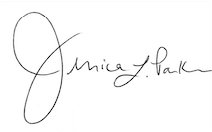Academic Versus Scholarly Writing
Welcome to our first blog post on the intriguing realm of academic writing. Before we delve into the complexities, let's start by clarifying some commonly misunderstood terms. The words "academic" and "scholarly" are often used interchangeably when discussing writing, but they do have distinct meanings. Let's explore these differences.
Academic Writing vs. Scholarly Writing: A Clear Distinction
Academic writing is the staple of student life. It encompasses the essays, theses, and course papers you produce to fulfill university or college requirements. The objective here is to communicate information about a specific subject within your discipline, as accurately and objectively as possible.
Conversely, scholarly writing is the domain of academics and researchers. It's the medium through which they communicate with other scholars, advance knowledge, and contribute to their field. This includes journal articles, technical reports, textbooks, and monographs.
So, if you're a graduate student, you're likely navigating both worlds. You might be writing an academic paper for your coursework one day, and drafting a scholarly manuscript for a peer-reviewed journal the next. It's a balancing act that requires versatility!
When I named Academic Insight Lab, I chose "academic" for simplicity. But rest assured, we're equally committed to supporting those engaged in scholarly writing.
Common Ground: Features of Academic and Scholarly Writing
Despite their differences, academic and scholarly writing share several key characteristics:
- Formal language (no room for slang or colloquialisms)
- Serious tone (maintaining professionalism and respect for the subject matter)
- Precise vocabulary (choosing the most accurate words to convey your ideas)
- Complex sentence structure (to adequately express complex ideas)
- Avoidance of contractions (opting for "it is" over "it's", for example)
- Adherence to a discipline-specific style guide (APA, AMA, Chicago, Harvard, etc.)
- Use of primary and secondary sources to support claims (evidence is crucial in academia)
For those interested in delving deeper into this topic, I recommend Dr. Sandra Shannon’s text, A Guide to Academic and Scholarly Writing. It's an excellent resource filled with valuable insights.
And there you have it – a brief overview of academic and scholarly writing. Now, armed with this knowledge, you're ready to tackle your next writing project.
Happy writing!


